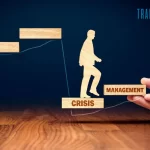Imagine a workplace where your value isn’t tethered to your job title but to the unique skills you bring to the table. This isn’t a futuristic fantasy—it’s the emerging reality as organisations worldwide pivot towards skills-based models, redefining traditional structures and compensation systems.
Table of Contents
The Shift Towards Skills-Based Organisations
Traditional job roles, with their rigid descriptions and hierarchical structures, are increasingly seen as impediments to agility and innovation. According to Deloitte’s research, only 19% of business executives and 23% of workers believe that work is best structured through jobs. Instead, a growing number of organisations are adopting skills-based models, focusing on the capabilities individuals possess rather than their job titles.
Driving Forces Behind the Transition
A skills-based approach offers several strategic advantages for organisations. According to Deloitte Insights, companies adopting this model are 57% more likely to be agile, allowing them to respond swiftly to evolving market demands. By shifting the focus from credentials and tenure to actual skills, businesses can also foster greater equity and inclusion—reducing bias and promoting fairness in hiring and career progression. Furthermore, aligning tasks with individual capabilities enhances talent utilisation, leading to increased productivity and improved employee satisfaction.
Real-World Applications
Major corporations are leading the way, as IBM and Walmart have both joined initiatives like the Rework America Alliance, removing degree requirements from certain roles to focus on skills. On the other hand, Accenture is investing in identifying and developing skills across its workforce, recognising the need for new mindsets and support structures to lead through these shifts.
Challenges and Considerations
Transitioning to a skills-based model presents its challenges. One major hurdle is the assessment and validation of skills—organisations must establish reliable methods to accurately evaluate capabilities and ensure the right fit between employees and tasks. Additionally, moving away from traditional hierarchies demands a significant cultural shift, requiring strong leadership buy-in and active employee engagement. Another critical component is technology integration; implementing robust systems to track, manage, and update skills data is essential for supporting and sustaining this new model effectively.
The Future of Work
As the workplace continues to evolve, embracing a skills-based approach offers a pathway to greater flexibility, inclusivity, and efficiency. By valuing the unique capabilities of individuals, organisations can unlock untapped potential and drive innovation in an increasingly competitive landscape.






